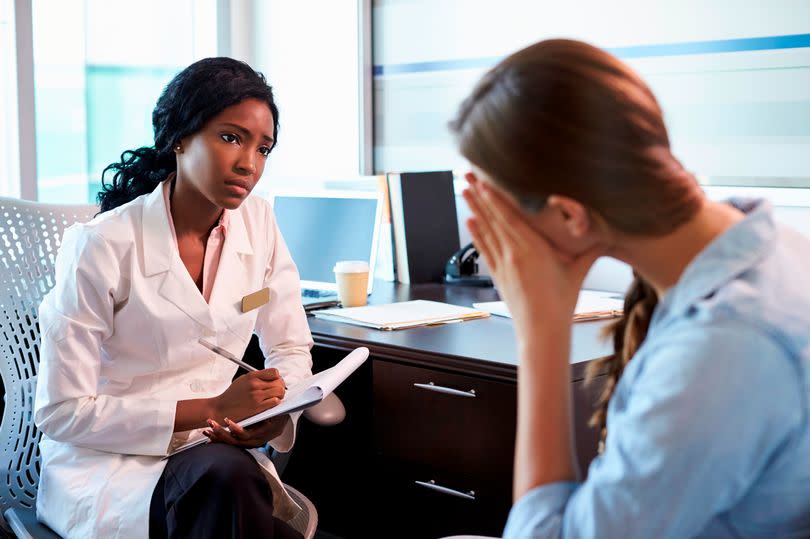Breast cancer signs you shouldn't ignore as Kris Hallenga dies aged 38

Breast cancer signs you should never ignore as CoppaFeel! CEO Kris Hallenga dies at 38. Philanthropist Kris Hallenga, who founded the initiative CoppaFeel! died from the disease today (April 6) aged 38 - leaving behind a legacy that inspired millions of women to check their breasts.
The British activist's life mission was for the charity she created to no longer need to exist at all, hoping that late diagnoses of breast cancer would be eradicated in her lifetime. Over 11,000 women in the UK alone die of breast cancer every year - that's one person every 45 minutes.
Read more: Killer once dubbed 'Britain’s most notorious fugitive' dies behind bars weeks after bid for freedom
So, here are the early warning signs of the disease, when you should see your doctor, and how to reduce your risk, reports the Mirror.
According to the NHS, one of the main symptoms of breast cancer in women is a lump or swelling in your breast, chest or armpit. The organisation urges Brits to regularly check their breast so they 'know what's normal for you'.
Conducting these at-home checks does not take long, but can make it much easier to notice any changes in the size, look, and feel of your breasts.
Other symptoms to look out for may be caused by other less serious issues - but it's still worth contacting your GP to get them checked out. These include:
Nipple discharge (if you're not pregnant or breastfeeding) which may have blood in it.
A change in size or shape of one or both of your breasts.
Pain in the breasts or armpit that does not go away. If you're experiencing pain in these areas that comes and goes - this is not usually seen as a symptom of cancer.
A change in the skin of your breast including dimpling (may look like an orange peel) or redness - which is harder to spot on black or brown skin
A change in the shape or look of your nipple, for example, it turning inwards or a rash that may look like eczema.
Cancer Research UK has issued a stark warning, highlighting that postmenopausal women carrying extra weight face a 'higher risk' of breast cancer compared to their slimmer counterparts. The leading charity is urging the nation to maintain a healthy BMI in the range of 18.5 to 24.9.
Additionally, it points out alcohol as another risk factor, stating: "There is no safe level of alcohol, so the more you can cut down the more you can reduce your risk."
The organisation acknowledges that while the contraceptive pill does carry a 'very small increased risk' of breast cancer, this risk diminishes to normal levels a decade after ceasing its use. However, there are numerous factors beyond one's control, such as aging and genetic predispositions.
That's why Cancer Research UK stresses the importance of regular breast checks and seeking medical advice if anything seems amiss.
For those affected by breast cancer, support and guidance are available through Macmillan Cancer Support. Moreover, information on the NHS Breast Screening Programme can be found here, offering resources on effective breast examination methods.

 Yahoo News
Yahoo News 
